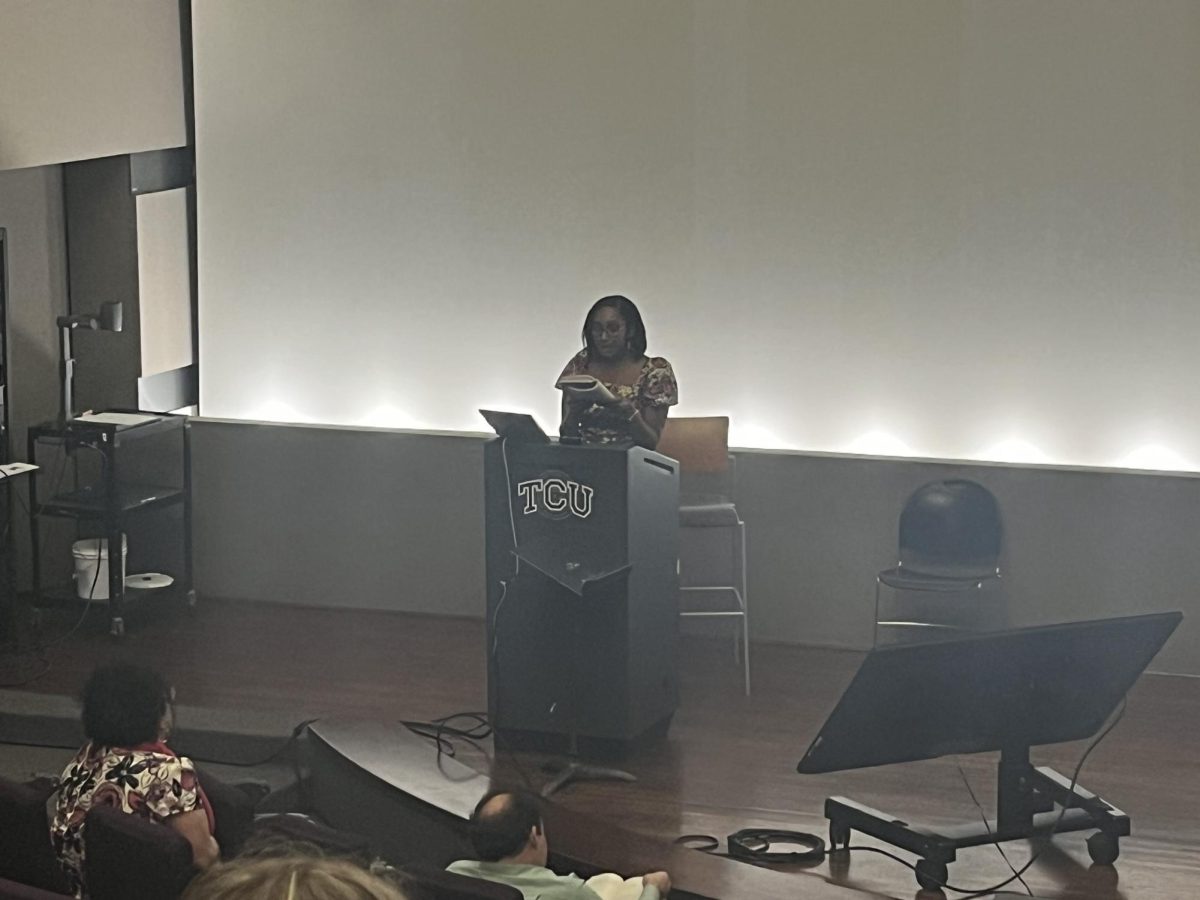A Faculty Senate motion to modify the course retake policy will be considered by the University Council next semester.
The motion states that for each time a student retakes a course, each final grade from that course will be averaged and calculated into the student’s GPA,
Nowell Donovan, provost and vice chancellor for academic affairs, said when he receives the motion, it will go to the University Council for approval. The members of the University Council include all deans in the university, a wide variety of faculty and students, he said.
Even with some members of the Faculty Senate opposed to this motion, it still passed 25 to 10 with 35 senators voting. There was no option to abstain.
Blaise Ferrandino, Faculty Senate Academic Excellence Committee chair, said TCU’s policy states that a student may retake a course as many times as he or she wants, and the most recent grade will be calculated into the student’s grade point average. However, there are some colleges within the university that have already implemented special policies in regard to how many times a student can retake a course.
This creates an inflated GPA for some students, Ferrandino said.
Priscilla Morrison, a member of the Student Government Association Academic Affairs Committee, said the House of Student Representatives passed the original resolution written on the issue unanimously.
Candace Ruocco, SGA Academic Affairs Committee chair, wrote in an e-mail that the resolution was passed Sept. 30.
Ted Legatski, Faculty Senate Student Relations Committee member and associate professor of professional practice in management, said he has had personal experience with how this policy affects students.
“I didn’t actually retake because I went to a different university, but in essence, I was replacing courses with F’s with similar courses, in this case with A’s,” Legatski said.
When Legatski was looking into graduate programs, he said he found that the graduate admissions put more emphasis on what he did in the last 60 hours of his undergraduate studies versus what he had done at the beginning of his college career.
“My concern is what’s best for the TCU student who needs to recover from a disastrous semester, whether it was self-imposed or externally imposed,” Legatski said. “All of us have the capacity to screw up and if that happens, there ought to be some method toward a recovery without having to go to some other school to finish your degree.”
For instance, under TCU’s policy, if a student takes a course and makes a D and then retakes the same course and makes an A, the A will be calculated into the GPA and will replace the D.
Ferrandino said if such student eventually applies to graduate school, the graduate admissions will average the D and the A and recalculate the student’s GPA, which will make the GPA lower than what is on the student’s transcript from TCU.
Patrick Miller, registrar and director of enrollment management, said TCU shouldn’t be concerned with what other universities do or what graduate programs look at.
“There will be as many graduate schools that will take our grades and GPA as we present them as there are that recalculate them, if not more,” Miller said.
Ferrandino said over the course of last year, the Faculty Senate and SGA studied more than 50 institutions, primarily private institutions. The Academic Excellence Committee looked at multiple institutions’ course retake policies and how they differed from TCU’s policy, he said.
Some universities only allow students to retake courses they receive an F in, while others allow students to retake courses who received a grade lower than a B, Ferrandino said. The policies vary between institutions, he said.
According to the Office of the Registrar, data was gathered from the students admitted into the university in 2001 to 2002. There were 3,432 students admitted that year, which includes freshmen and transfer students. Even though the data showed that 27 percent of the students retook courses, only 2 percent of the courses at TCU were retaken, according to the report. Also, 61 percent of the courses retaken were lower division level.
Miller said the current policy has helped 15 to 20 students at each graduation to graduate.
Ferrandino said, however, if this motion becomes university policy, the registrar warned there could possibly be a small number of students that would not be able to graduate.
Miller said the policy changes are not a step in the right direction because it will affect whether some students will be able to stay at the university.
“I don’t think it improves the TCU experience for students, and I think the small number of students who need to repeat courses will be denied the opportunity to learn how to be successful,” Miller said.
Ruocco said because the motion passed in the Faculty Senate, it will be submitted as a recommendation to Donovan.
Donovan said for the motion to become university policy, the University Council has to discuss and vote on it. The majority vote will determine the outcome, he said.
Both Ruocco and Donovan said they hope to see the approved policy implemented in the upcoming academic year.




